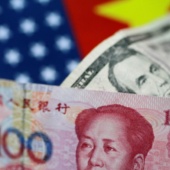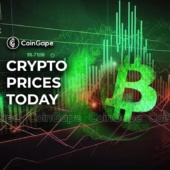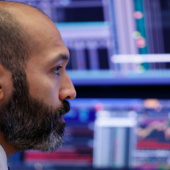Shiba Inu (SHIB) price has been in a bullish rally over the last 24 hours, reaching an intraday high of $0.00002668 before encountering resistance. However, with the Federal Reserve signaling a steady stance on interest rates, some investors are now questioning whether SHIB’s rally can sustain its momentum or if a pullback is on the horizon.
Is Shiba Inu Price Rally at Risk?
A substantial transfer of 4 trillion SHIB tokens, valued at approximately $99 million, occurred between two unknown wallets, stirring speculation in the cryptocurrency community. Large whale transactions often lead to market volatility as they can signal an intention to sell or shift positions.
When whales move massive amounts of tokens, it tends to create anxiety among smaller investors, who fear that these moves might trigger a sell-off.
🚨 🚨 🚨 🚨 4,000,000,000,000 #SHIB (99,005,333 USD) transferred from unknown wallet to unknown wallethttps://t.co/Qz6SULjznA
— Whale Alert (@whale_alert) November 14, 2024
Market analysts suggest that the transfer’s timing, coinciding with the SHIB price recent rally, could lead to increased caution among investors. Post this transaction, SHIB price has nosedived almost 5% with the market capitalization dipping 5.30% to $14.19B.
Federal Reserve’s Cautious Stance on Rate Cuts Impacts Sentiment
Federal Reserve Chairman Jerome Powell recently stated that the U.S. economy shows no immediate signs of requiring rate cuts, allowing the Fed to “approach decisions carefully.” This announcement has dampened expectations of a December rate cut, with CME FedWatch data showing a decline in rate cut probability from 83% to 62%.
Powell’s remarks led to a minor downturn in crypto markets as investors weighed the implications for digital assets, which often benefit from low-interest-rate environments.
Following the speech, Bitcoin dropped by 1.5%, falling to $87,751, while Ethereum and SHIB experienced similar declines, with SHIB slipping 2.5% to $0.00002469. The Fed’s cautious approach may keep some investors away from high-risk assets, potentially slowing SHIB’s upward momentum.
Technical Indicators Suggest Mixed Outlook for SHIB
Technical analysis shows that SHIB is currently facing significant resistance around the $0.00002600 level. This price point has acted as a barrier in recent days, with SHIB struggling to maintain momentum beyond this threshold. On the downside, SHIB has support at approximately $0.00002480, where the price has consistently rebounded in past sessions.
The 50-day Simple Moving Average (SMA) has risen above the 200-day SMA, forming a “Golden Cross,” which is generally seen as a bullish signal. However, the Relative Strength Index (RSI) at 66.59 indicates that SHIB is nearing overbought conditions, suggesting that the current rally could be due for a correction. Meanwhile, the Money Flow Index (MFI) at 47.32 shows moderate buying pressure, pointing to a balanced market sentiment without a clear directional bias.


Amid this price downturn, trading volume for SHIB has decreased by over 50%, suggesting reduced interest or activity in SHIB derivatives, which could signal diminishing momentum. Additionally, open interest in SHIB contracts has declined by nearly 3%, hinting that traders may be closing positions rather than opening new ones.
Despite this, Shiba Inu’s marketing lead, Lucie, has expressed confidence in the token’s potential, predicting a possible rally to $0.00006. Concurrently, according to a Shiba Inu price prediction should this bullish momentum build up, a rally towards reach $0.0001 may be looming.
Disclaimer: The presented content may include the personal opinion of the author and is subject to market condition. Do your market research before investing in cryptocurrencies. The author or the publication does not hold any responsibility for your personal financial loss.

















✓ Share: